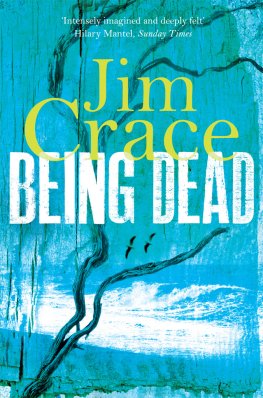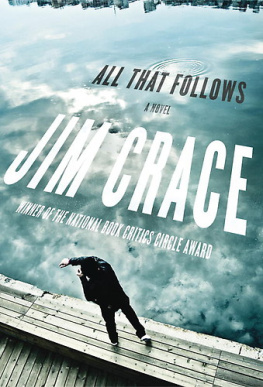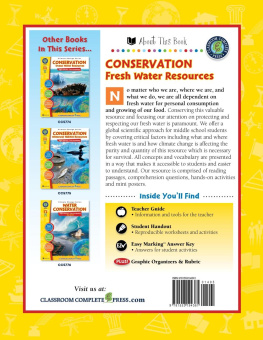Jim Crace - Signals of Distress
Here you can read online Jim Crace - Signals of Distress full text of the book (entire story) in english for free. Download pdf and epub, get meaning, cover and reviews about this ebook. year: 2008, publisher: Picador USA, genre: Prose. Description of the work, (preface) as well as reviews are available. Best literature library LitArk.com created for fans of good reading and offers a wide selection of genres:
Romance novel
Science fiction
Adventure
Detective
Science
History
Home and family
Prose
Art
Politics
Computer
Non-fiction
Religion
Business
Children
Humor
Choose a favorite category and find really read worthwhile books. Enjoy immersion in the world of imagination, feel the emotions of the characters or learn something new for yourself, make an fascinating discovery.
Signals of Distress: summary, description and annotation
We offer to read an annotation, description, summary or preface (depends on what the author of the book "Signals of Distress" wrote himself). If you haven't found the necessary information about the book — write in the comments, we will try to find it.
Signals of Distress — read online for free the complete book (whole text) full work
Below is the text of the book, divided by pages. System saving the place of the last page read, allows you to conveniently read the book "Signals of Distress" online for free, without having to search again every time where you left off. Put a bookmark, and you can go to the page where you finished reading at any time.
Font size:
Interval:
Bookmark:
Jim Crace
Signals of Distress
1. The Belle and the Tar
BOTH MEN were en voyage and sleeping in their berths. Hard winds swept in and put their ships ashore.
The coastal steampacket, Haporth of Tar, on which Aymer Smith had his cabin, had lifted before the wind that night as if it meant to leave the water and find a firmer passage in the clouds. It arrived at dawn off Wherrytown, hastened by the storm on its short journey along the Channel. Ten in the morning was its scheduled time of arrival. Dawn was too early for the harbour lightermen to be at work. No one with any sense was up and out in such a wind. The night was wild and cold. A few miles down the coast from Wherrytown, the Cradle Rock, which normally would take the efforts of two strong men before it began to seesaw on its pivot stone, teetered, fluctuated, rocked from just the muscle of the gale.
The Tar shipped heavy seas as it came into harbour. There was no choice but for the five-man crew to still its paddles and shut its fires. Its passage in the wind was more temperamental and less pontificating than its progress under steam. The Tar was thrown against the harbour boom, and then against the channel buoys which marked the vessels road. The wind pushed north. The tide tugged south. The Tar was only fifty yards from shore. Two sailors had to land a line by rowboat and secure the ship to capstans on the quay. And then they had to coax the Tar to dock. Aymer lay awake. He wasnt any use on deck. His shoulder hurt from where hed fallen from his bunk. The muscles in his throat and stomach ached from vomiting. His breath was foul. His temper, too. He should have travelled overland with the company carts, he decided. He should have stayed at home instead of meddling abroad. Yet now his ship had found a haven, he sought a haven, too, in sleep, roped to the granite of the quay. His dream was kelp and some young country wife, ensnared and going down, with Aymer drowning in the girl, the girl sucked under by the weed, the weed pitchforked like hay on tines of sea and wind.
OTTO, TOO, was not much use on deck. His berth, at orlop level on the Belle of Wilmington, was not secured. But Otto was. He was the ships goat by night, its galley donkey during day. His ankle was held by a light chain, six feet in length and fastened to a timber rib. Shipmaster Comstock considered it a safety chain. Men far from home are boldened by the dark, he said. His African might settle scores at night, if he were left untethered. He might do damage to himself or to the Belle or to the crew or to the galley rations and the grog. He might cause mischief amongst the cargo of four hundred cattle which Shipmaster Comstock had taken aboard in Montreal and whose quarters he meant to fill on the return with emigrants to Canada, if he survived the storm. Wherrytown, the first port of call, could only be a few miles down the coast.
Without a porthole or any light, Otto experienced a partial storm. It wasnt wet for him. He couldnt see the waves slap up against the timber. Or feel the wind. His cabin was a tombola. What wasnt fixed the stool, the water jug, the palliasse, the black mans boots, the bed fell across the cabin. Otto fell as well. The chain cut into his ankle. But then he caught hold of the chain and pulled himself tight up against the timbers of the Belle so that, indeed, the chain did become a safety chain. He made a buffer from the palliasse so that the cabins sliding furniture, the unsecured wooden pallet where he slept, would not cause too much bruising to his legs. The cattle on the orlop level, too were not so fortunate. They tumbled without benefit of chains. Some were concussed. Some broke their legs. They were too blind and winded to make much noise, except a tuneless carpentry as hoof and horn hit wood. Three cows at least had heart attacks. Another choked on its swallowed tongue. The bulkhead separating Otto from twenty of the cows could not withstand the buffeting of so much beef. It splintered. Then it fell apart. Two animals broke through the boards into Ottos berth and slid across the planking on their sides. They had no time to find their feet. The Belle made reckless angles in the gale. One cow fell against the palliasse and kicked to right itself. A hoof struck Otto on the ear. His head bounced off the wood. He fell six feet and swung like a carcass on a butchers chain. The sea returned him to his berth, then dropped him on the chain with every ridge and trough of water. His swollen face and ear took splinters from the deck. The anklet etched new wounds. He was unconscious. He didnt feel the pain.
THE CAPTAIN did his best, according to the book. The foresail on the Belle was lowered, the mainsail double reefed. But still the wind at its stern hurried the boat bitingly forward towards the darkness of the shore. The fore and mizzen topmasts, with spars and rigging too, fell away into the sea. Part of the bulwarks went. And then the mainsail, taking off into the night like some great canvas albatross. Everything was swept off deck by long black hills of water, thirty, forty feet in height. The hands on board at least those six of seventeen who werent sick, and who had managed to hold on by their eyelids to the masts and rigging of the Belle now waited for the lull following every set of seven waves and sent the anchors down. But the anchors slipped. The Belle heeled landwards. It went in two hundred yards, found some upright purchase on a sandy bar, and stuck. The crew, excepting Otto, took to what rigging had survived. They flew their signals of distress, though it would not take a flag when it was light to signify to those on land that the Belle was almost lost. Comstock fired the ships double-barrelled cannon. He prayed the wind would take the sound into the bedrooms on the coast and that the people thereabouts had sympathy and rescue boats.
Nobody came that night. But it wasnt long before the waves and wind abated, and a teasing, ruddy dawn thinned and thickened through the mist. The Belle was eighty yards offshore. The sea was still ill-tempered. Between the sandbar and a beach, however, the water was calmer. They checked the Belles four longboats. Two were lost and two were smashed. Would someone swim ashore? There were no volunteers. They were too tired, and fearful. The tide had turned and out-haul waves were rocking the Belle from the landward side. No human swimmer could achieve the shore in seas like that. But Captain Comstock put the ships bitch, Whip, in the water with an ensign tied on to her collar, the red on white of I Need Help. They wouldnt let her climb back on board. At last, with the good sense and resignation of a dog, Whip headed for the beach. The cattle that had survived the night were not far behind. Comstock opened up the orlop hatches and drove them into the sea. He feared their frenzied restlessness would further destabilize the Belle. Many didnt make the shore. The ones with broken limbs or those too deeply shocked did not survive the swim. Others had no compass sense and headed off for Quebec. But three hundred cattle maybe more got to land that day and set to work on sampling the salty foliage of the backshore as if thered never been a storm.
IT WAS SEVEN on a Saturday, November 1836, on that far angle of the English coast. Only strangers were awake. The Americans clung to rigging out at sea, impatient for a sign of life. Aymer Smith, ready to encounter Wherrytown, packed his careful travel stores by candlelight below decks on the Tar: his tarpaulin coat and leggings, his books and writing implements, some anchovy paste, a Bologna sausage, some chocolate, a great bar of black bread, three dozen cakes of soap, a jackknife and a leather flask. He wrapped them in a carriage rug which doubled as a bag. Otto bled into his palliasse. The cattle from Quebec moved on from backshore weeds and tested the corky grass of dunes which separated the hamlet of Dry Manston from the sea. The final strings and shreds of cloud stretched and disappeared. The water was as clear as gin. Whip ran along the shore, snapping at the waves and cows. And then she went in search of other dogs. Shed heard them barking, and soon had found the cottage where two large mongrels were secured by ropes to the porch. Whip found discarded bones which she could gnaw, and turnips. At first the mongrels went for her, but couldnt reach. They were too bored to persevere. Whip found a corner of a shed where she could sleep, her chin between her feet. The red on white of I Need Help had loosened at her collar. And help was not at hand.
Font size:
Interval:
Bookmark:
Similar books «Signals of Distress»
Look at similar books to Signals of Distress. We have selected literature similar in name and meaning in the hope of providing readers with more options to find new, interesting, not yet read works.
Discussion, reviews of the book Signals of Distress and just readers' own opinions. Leave your comments, write what you think about the work, its meaning or the main characters. Specify what exactly you liked and what you didn't like, and why you think so.
















